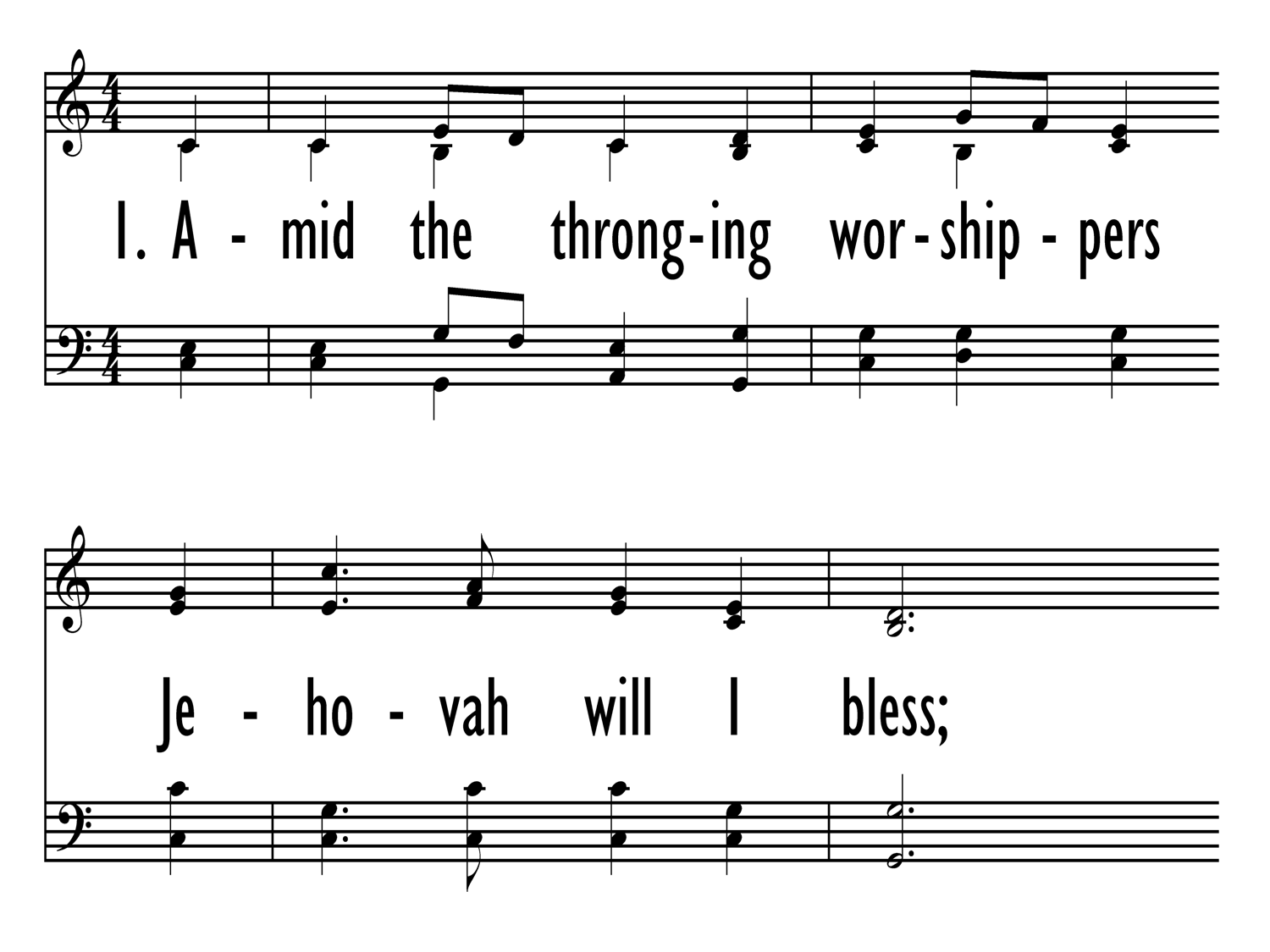- |
User Links
Amid the Thronging Worshipers
Hymn Information
- First Line
- Amid the thronging worshipers
- Text Source
- <cite>Psalter</cite>, 1912
- Tune Name
- BOVINA
- Composer
- Laura A. Tate (1912)
- Topic
- Humility · Mercy · Occasional Services: Funeral/Witness to the Resurrection · Elements of Worship: Opening of Worship: Called And Gathered
Copyright Information
- Text Copyright
- Public Domain
- Tune Copyright
- Public Domain
- Reprint/Projection Information
- Words and Music: The Words and Music are in the Public Domain; you do not need permission to project or reprint the Words and Music.
Full Text
Scripture References
Further Reflections on Scripture References
“Amid the Thronging Worshipers” is a versification from the concluding part of Psalm 22, that great psalm of lament most quoted in the New Testament. The conclusion of Psalm 22 features vows of strong praise made in the sure faith that God will deliver the believer and answer prayer. Like many psalms, this text is cosmic in scope, moving from the singular “I” (st.1) to “his people” and saints” (st.1-2) to “all the earth” (st.3) The versification is from the 1912 Psalter.
Bert Polman, Psalter Hymnal Handbook
Confessions and Statements of Faith References
Further Reflections on Confessions and Statements of Faith References
In a world with many threats and enemies, we find hope and security in his fatherly care. Both Belgic Confession and Heidelberg Catechism put significant focus on the Providence of God and the care God provides for us. Heidelberg Catechism, Lord’s Day 9, Question and Answer 26 professes that he “will provide whatever I need for body and soul” and that we are “completely in his hand.” In Belgic Confession, Article 13 professes that he “watches over us with fatherly care.”
God calls his children from many sources, languages, nations, and from a variety of social standings and personal needs. The Confessions are very clear on this. Belgic Confession teaches in Article 27, “This holy church is not confined, bound, or limited to a certain place or certain people.” Our World Belongs to God, paragraph 30 reminds us, “The Spirit gathers people from every tongue, tribe and nation...” and in paragraph 34 teaches that “all are welcome…the homeless…the broken…the sinner…the despised…the least…and the last…”
Amid the Thronging Worshipers
Additional Prayers
Amid the Thronging Worshipers
Tune Information
- Name
- BOVINA
- Key
- C Major
- Meter
- 8.6.8.6 D


 My Starred Hymns
My Starred Hymns




